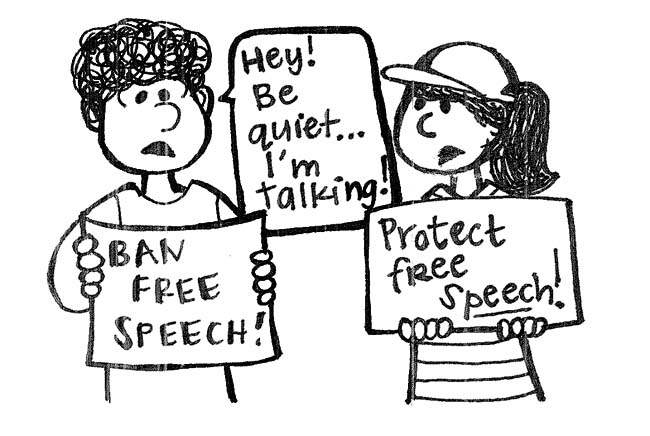Last week’s report from the “Foundation for Individual Rights in Education” gave the College of William and Mary a “green light” rating for protecting free speech on campus. Undoubtedly, this is a sign of the progress that the current administration has made, and it’s nice to note recognition of that progress. However, it seems that amidst our back-patting, we forgot that it wasn’t too long ago that the College was pretty bad about violating students’ constitutional rights.
Fixtures of this school will remember the controversy over an “affirmative action bake sale” in 2003. A student group protesting the College’s admissions policy (in which race is a factor that may be considered) set up a table in the Sadler Center and sold cookies to students of different races at different prices, claiming it was a representation of how affirmative action was unfair to certain students. The group’s demonstration was controversial, and the administration was not pleased about it — the demonstration was shut down as an affront to the College’s goals of diversity and inclusiveness. FIRE got involved and made enough noise about the issue that a second protest went unhindered, although the school released a statement which called the demonstration “inexcusably hurtful.”
Free speech was back in the spotlight in 2007 when the College first established its Bias Incident Reporting system, which allowed any student to anonymously report hurtful behavior to the school if it was directed at anyone because of gender, race, religion, sexual orientation or political beliefs. Students, alumni and outside groups, worried about the implications of the policy, got involved once again and pressured the College to remove the possibility of anonymous reporting and to clarify that harassment had to be serious enough to “threaten an individual or limit the ability of the individual to work, study, or participate in College activities.”
We might like to think we’ve now become paragons of the First Amendment, but FIRE and other such groups are still concerned about the restrictive and confusing “free speech” zones at the College where, laughably, students still have to ask permission to protest. Lacking the kind of absolute, rock-solid, hundred percent administrative support of free speech that we deserve, we need to remember that nothing stops the school from violating our rights at their own whim. There’s a lot of risky language in the College’s policies that mirrors some of the worst rights violators in the country. Code words are used, but anything that suggests that it’s not acceptable to ever offend anyone else is cause for concern. Currently, there aren’t any College policies that threaten free speech as seriously as some have in the past. However, that doesn’t mean we can put that issue to bed.
Email Carter Lockwood at crlockwood@email.wm.edu.

